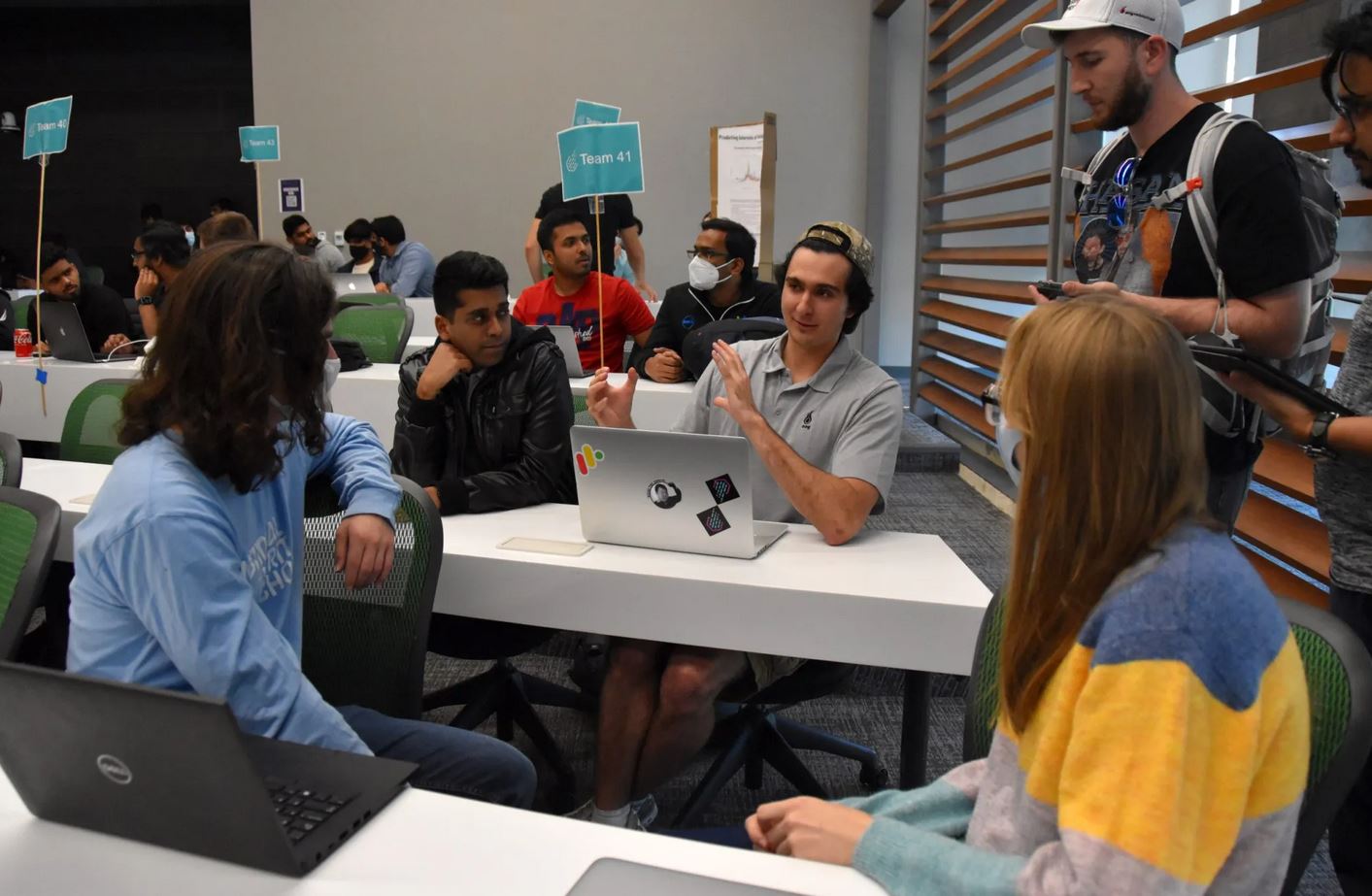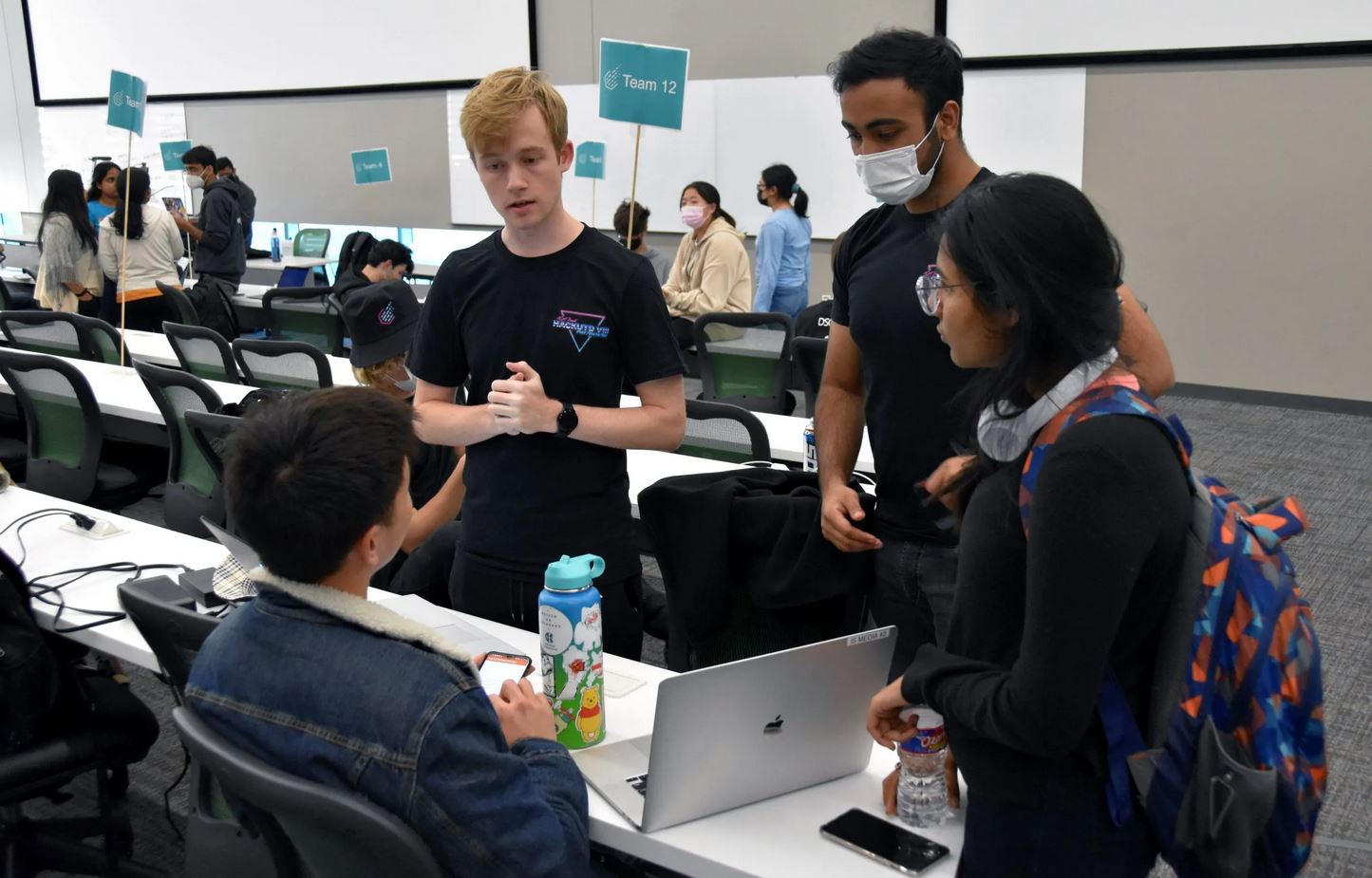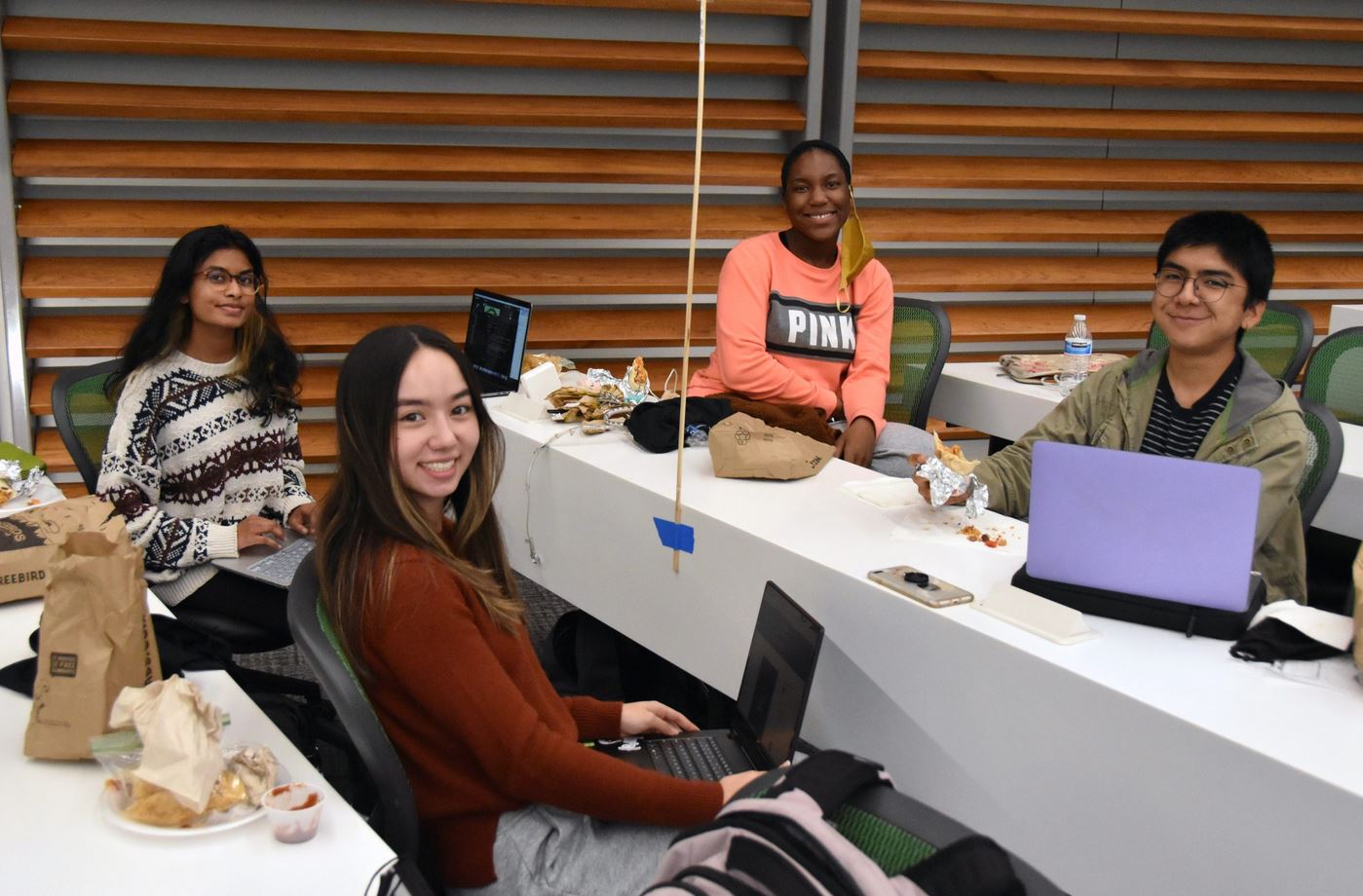HackUTD VIII Challenges Students To Use Their Imagination And Knowledge To Change The Lives Of Real People Through Finding Solutions To Real Problems
The University of Texas at Dallas Computer Science Department and the UT Dallas ACM hosted one of the largest hackathons in Texas for its 8th iteration last fall. HackUTD encourages students to use their imagination and knowledge of computer science to change the lives of real people by producing solutions that solve real-world problems through outside the box thinking. For 24 hours, HackUTD allows participants the freedom to learn new concepts, work with friends, step outside their comfort zone, and showcase their skills.
As one of the major collegiate hackathons, HackUTD has become one of the most prominent university hackathons in North Texas.Each year, HackUTD is sponsored by big-time industry sponsors such as Goldman Sachs, American Airlines, Capital One, State Farm, EOG Resources, and UT Dallas to provide prizes for the winners of their competitions. HackUTD VIII saw a record number of UT Dallas student hackers attending the event. Approximately 800 UT Dallas students participated in the hackathon. HackUTD VIII also had the largest number of final projects with over 110 projects submitted for judging.
Once the hackathon officially started, attendees worked furiously on their projects. Throughout the 24-hours, attendees learn how to work with new technologies, throw together tons of code, and hopefully finish what they set out to build. In HackUTD’s case, those problems are presented in the form of challenges by tech sponsors. Goldman Sachs Investment Strategy Challenge proposed the challenge of building co-relation between non-traditional fundamentals like social media chatter and activity, industry leader influences, trends/bubbles created by groups of retail investors, etc., and their relation to the performance of different types of asset classes, including digital/crypto. State Farm’s 100 Year Anniversary challenged attendees is to identify and build out a new tech product or service that State Farm could provide to its customers as a “value add.” EOG Resources asked attendees to use their creativity to develop an application that could process a steady stream of real-time sensor data to optimize and visualize water distribution for their upstream operations. American Airlines Flight Enhancement Challenge asked students to build an application that helps American Airlines elevate the customer travel experience, boost operational efficiencies and employee performance (baggage handling, gate agents, etc.), or enhance American Airlines’ brand image. Capital One challenged HackUTD attendees to create the best financial hack. Aside from industry sponsor challenges, the hackathon offered challenges geared towards helping make UT Dallas student life better.
HackUTD organizers went above and beyond for hacker experience. Running an event for over 800 participants was no easy undertaking, but the HackUTD leadership team again took on the challenge. Organizers took the digital landscape and made the absolute best of it. Attendees were blown away by the out-of-the-box ideas organizers implemented to make hacker experiences excellent. HackUTD VIII was organized under the guidance of UT Dallas CS Professor John Cole, who serves as the ACM (Association for Computing Machinery) faculty sponsor.
HackUTD is much more than a 24-hour computer science event. HackUTD attendees were offered the option to join various industry-led workshops involving tech talks hosted by the event sponsors in order to gain insight into the role of technology within their industry. Workshops included Full stack development with Next.js, Arduino Crash Course, Data Visualization with Streamlit, and more. In addition to developing projects and attending workshops/webinars, students were also offered the option to participate in non-coding-related activities along the way to help students unwind and relax.
Many of the students stayed awake for the full 24-hours in order to finish their projects by noon on Sunday. Despite the near-complete lack of sleep, teams submitted their final projects on time. They subsequently spent two hours showcasing their ideas in a science-fair-like manner to a judging committee consisting of tech industry members, sponsor representatives, and UT Dallas faculty. HackUTD VIII had its most significant number of final submissions in the competition’s history, with over 110 projects. Teams were judged on categories including uniqueness, technicality, viability, UI & UX design, complexity, usefulness, and impact factor. Winning teams in each challenge were awarded prizes. There were also prizes from each of the company sponsors.
The following are brief descriptions of first, second, and third place winning projects as well as winners of sponsor challenges at HackUTD VIII:
HackUTD VII General Winners
Comet Scout
Comet Scout is an AR app that guides students to their classes. The Comet Scout app takes advantage of cutting-edge software and hardware and enables UT Dallas students to have a better time rushing to their classroom. The app tracks the student’s current location inside a building with pre-made world data and uses that data to provide the shortest path to wherever they want to go. Comet Scout team members included Vy Lâm, Shoaib Huq, and Khang Nguyen.
Stock Port
Stock Port is a Comprehensive web app that helps analyze sentiment for any stock, gives recommendations based on opinion, and allows users to sell and buy stocks on demand. The inspiration for this project came from utilizing existing data on the internet to analyze whether certain stocks are good for purchase/sale. Getting involved in the stock market is always beneficial for all age groups, and this application aims to get people into investing in the stock market so they can learn how to manage their money better. The app’s backend component was built using Python and the API endpoints with Flask. Whereas the frontend UI was built with React, the group utilized Firebase for the database solution. Stock Port team members included Ashwin Somasundaram and Hansika Sundaresan.
WhethR
WhethR allows users to get real-time information about the weather, saving them time and money so as to prepare for natural disasters. By grouping weather conditions into risk categories and providing information on how to prepare for this weather, WhethR aims to educate people and reduce the overall loss of life and property. WhethR uses OpenWeatherAPI to query for live weather updates and display those in an easy-to-use interface for notifying users about weather conditions that could be risky for themselves or their property. It also shows local disaster shelters in the event that staying at home would be too dangerous. Although the insurance claim process is specific to State Farm customers, everyone would be able to use the other features of the website like weather monitoring/notifications and shelter location search. WhethR team members included Raghav Sriram, Bryant Hou, Kendra Huang, and Nick Baker.







